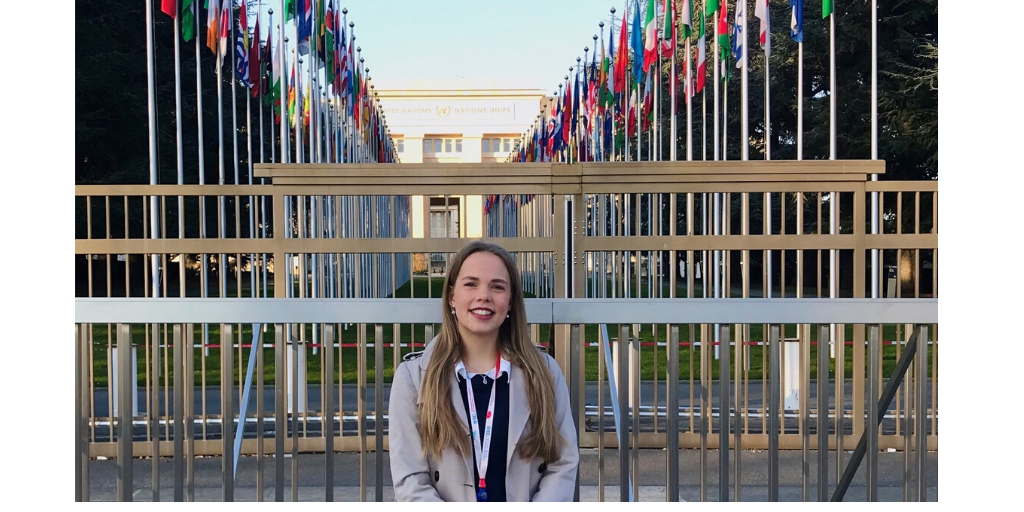The World of Work during the COVID-19 Pandemic
The pandemic has put the governance systems of the International Labour Organization (ILO) and World Health Organization (WHO) under stress but has also accentuated the enormous importance of their work directing global health and protecting labour rights and work-related issues.

When I applied for an internship at the Permanent Mission of Finland to the UN in Geneva last October, little did I know that the spring would bring with it a global pandemic, causing massive disruption to society and the global economy, as well as to the UN system and my own work.
The pandemic has put the governance systems of the International Labour Organization (ILO) and World Health Organization (WHO) under stress but has also accentuated the enormous importance of their work directing global health and protecting labour rights and work-related issues.
Extraordinary Times at the ILO and the WHO
My first week at work began with a jump into the deep end. In my very first meeting, I found myself in a COVID-19 information briefing led by none other than Director-General of the WHO Tedros Adhanom Ghebreyesus. It was surreal but fascinating to hear the heavyweights of global health governance sharing their insights.
During my second week, I found myself in a meeting alongside the Ministers for Health of China, Japan, South Korea and the USA, listening to reports on the health and socio-economic crises caused by COVID-19 in their respective countries.
Despite these meetings being run by the WHO, the world of work and the importance of protecting essential public service workers, came up again and again. My two portfolios at work, which I had previously seen as only tangentially related, become heavily interlinked in the current extraordinary situation.
Protecting the rights, health, safety, working conditions, and livelihood of workers is crucially important not only during, but also after the pandemic – while the pandemic itself will in time pass, the effects of the economic and labour crises will be felt for much longer.
A Crisis for Work and for Workers
The ILO has described(Link to another website.) the COVID-19 crisis as the most severe crisis since the Second World War, and estimates the pandemic is affecting 81% of the global workforce. Working hours are set to decrease by almost 7% in the next quarter, equivalent to a reduction of 195 million full-time workers.
Most concerning is the uneven impact of the pandemic, with frontline workers such as healthcare and essential public service workers, already vulnerable or marginalised groups, and informal sector workers disproportionately impacted.
Regional divergence is also significant, with countries characterised by high informality and low social protection coverage, such as many African countries, disproportionately affected by the virus and its socio-economic impact.
In America, where health insurance coverage was already a challenge, millions of laid-off citizens who previously received health insurance through their work are now more vulnerable in the COVID-19 health crisis.
With the virus’s global and indiscriminate impact, the work of the ILO to advance social justice and decent work is more important than ever.
The Future of Work is Now
It has been unexpected but intriguing to witness the topics I discuss in my master’s thesis (which discusses the future of working) play out in the real world. As part of my conceptual framework, I have written about how digitalisation is causing work to disconnect from time, place, and employment.
In the current context, the digitalisation of ways of working and of working life has been put on fast track, as many companies are forced to move their operations into the digital realm and teleworking becomes the new normal for hundreds of millions of workers.
In this new and unknown situation, ILO guidelines on occupational health and safety become increasingly relevant not just for workers in physically demanding professions or healthcare workers exposed directly to COVID-19, but all workers faced with new ways of working.
Protecting business resilience and the physical and mental wellbeing of employees becomes especially challenging in these extraordinary times.
It remains to be seen what the final trajectory of the pandemic and the consequent socio-economic crises will look like, but even in the midst of significant uncertainty the ILO and the WHO will continue to play their crucial role in defending the health and safety of workers and society.
It is an intensive but enormously interesting time to be in Geneva, witnessing multilateral decision-making and international cooperation at the very centre of global health governance. You can learn more about the UN’s work in the COVID-19 context through the ILO’s(Link to another website.) and WHO’s(Link to another website.) dedicated pages on the topic. More information on the epidemic response in Finland can be found on the Finnish Government’s COVID-19 information page(Link to another website.).

